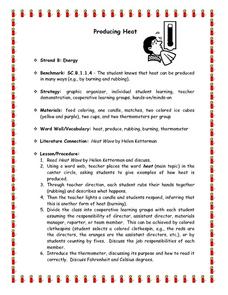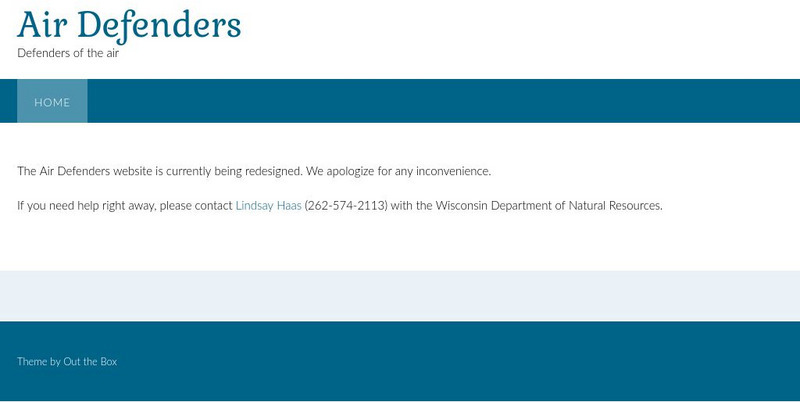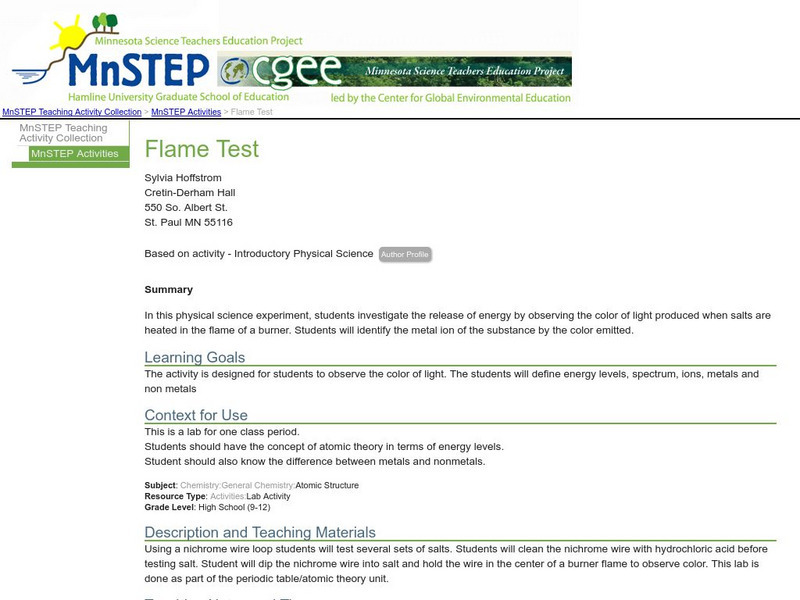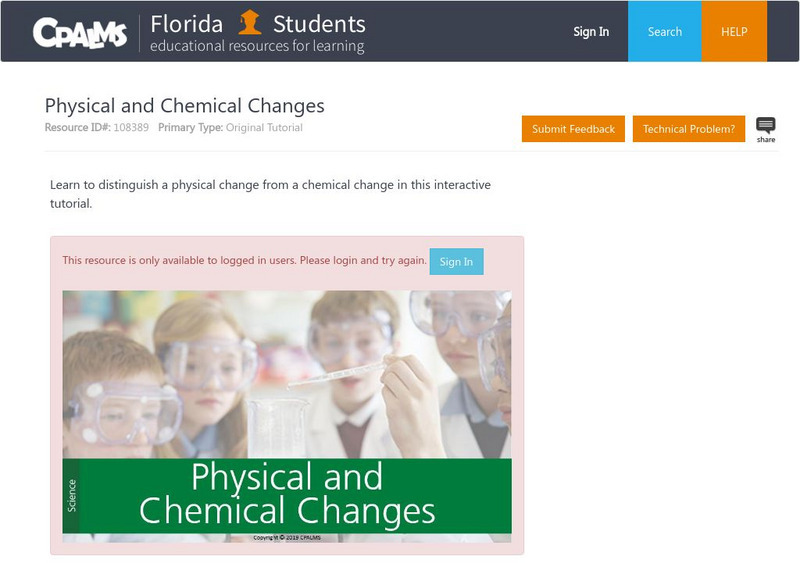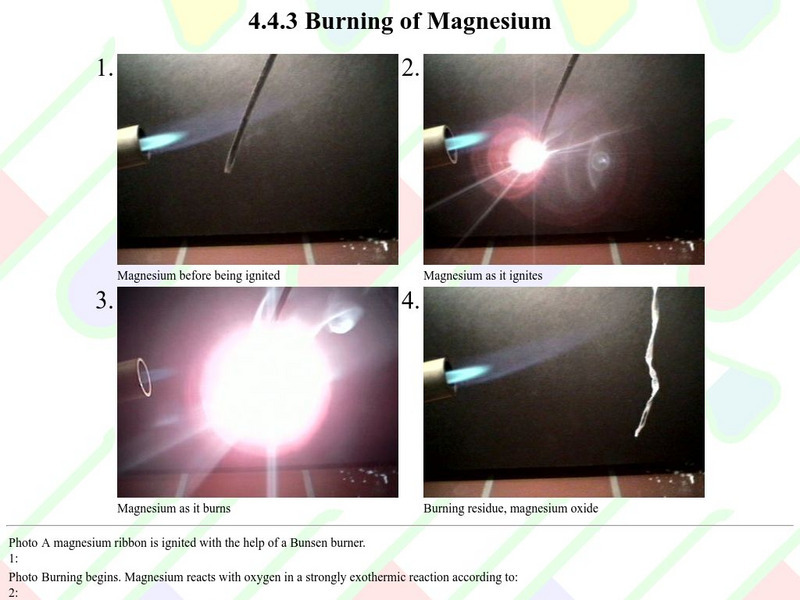Curated OER
Yellowstone Fires
Students assume the role of environmental biologists and help several government agencies resolve the debate surrounding "let it burn" policies in national parks.
Curated OER
What is a Chemical Change in Matter?
In this chemical change worksheet, students write down the description of a match before burning and after burning. This worksheet is a graphic organizer.
Curated OER
Producing Heat
Learners listen to "Heat Wave" by Helen Ketterman and discuss the story by creating a word web with heat as the main topic. They break into groups and conduct an experiment using a thermometer to record the temperature of melting ice...
Curated OER
Do Some Research: Process of Burning
In this Internet research worksheet, students research answers to the question, "What is the process of burning?" Students use the Internet to find answers to include in a short report to be written on the lines provided.
Curated OER
Coal and the Environment
Students read about how burning coal affects the environment. After students finish reading about how burning coal affects the environment they have a group discussion to discuss what they thought about the information.
BioEd Online
Bio Ed Online: Finding the Carbon in Sugar
Students learn that fossil fuels release energy when they are burned, and this takes the forms of light, heat, gases, etc. In this activity they explore combustion with a candle and with sugar. The activity and accompanying PowerPoint...
Other
Staffordshire Net Learning/ Combustion Reactions
A very useful site with information and examples of combustion reactions.
BBC
Bbc Schools: Ks2 Bitesize: Science: Materials: Changes in Materials
Help solve the mystery and find the missing crystal. Following the activity, read more about chemical and physical changes, and then take a quick quiz to check for understanding.
Other
Wisconsin Environmental Health Association: Air Defenders: Quest for Clean Air
A multimedia journey teaches young learners about open burning, air quality, and asthma. Learn about alternative ways to dispose of trash and complete the mission of achieving cleaner air.
Science Education Resource Center at Carleton College
Serc: Flame Test
In this physical science experiment, students investigate the release of energy by observing the color of light produced when salts are heated in the flame of a burner. Students will identify the metal ion of the substance by the color...
Other
The Black and White Darkroom
This personal homepage was developed to aid amateur photographers who would like to produce their own black and white photographic prints from film in their own home darkrooms. Information is given on home darkrooms, as well as equipment...
CPALMS
Florida State University Cpalms: Florida Students: Physical and Chemical Changes
Explore the differences between chemical and physical changes, including some examples at the atomic level.
Birmingham Museums Trust (UK)
Birmingham Museum & Art Gallery: The Science of Candles
Click on each question to find the answers to how a candle works.
Other
Siegen University: Burning of Magnesium
This site from Siegen University contains brief information and a step-by-step photo display of burning magnesium. The information is very short but the pictures are definately worth checking out.
Science4Fun
Science4 Fun: Biomass Energy
What is biomass? Learn about the different types of biomass energy, how it is released, and the advantages and disadvantages of biomass.
Curated OER
Royal Society of Chemistry: Olympic Torch
The Olympic torch takes a journey every two years.




